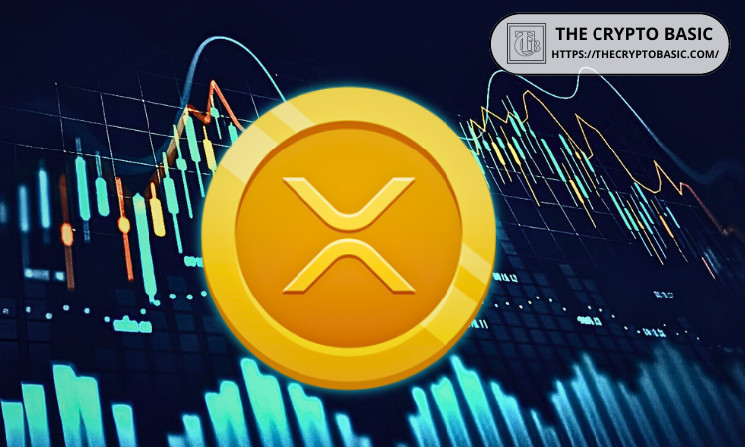XRP has shown relative price stability over the years, even after experiencing several market cycles, but some believe this trend might be beneficial for adoption.
XRP’s Relative Price Stability
After reaching its all-time high of $3.31 in January 2018, XRP saw a massive drop and began trading within a narrow range of $0.52 to $0.25 between July 2018 and June 2019.
Notably, the price hit a low of $0.11 in March 2020 before recovering to $1.96 in April 2021. However, XRP has since returned to the $0.50 range, with its current value sitting at $0.54.
For context, Bitcoin (BTC) traded between $3K and $13K from July 2018 to June 2019. However, it now changes hands at $68K, with no likelihood of revisiting the $13K range.
Similarly, between July 2018 and June 2019, Ethereum (ETH) changed hands in a range of $223 to $514. Now, the altcoin king trades for $2,646, with the possibility of revisiting the $500 level nearly non-existent.
Technological Advantages
Investors have lamented this price stagnation, as XRP has remained below the $1 level since December 2021. Amid the concerns, blockchain researcher SMQKE argues that for institutions looking to adopt XRP, its current price is of little concern.
SMQKE stressed that institutional investors value XRP not for its short-term price movements but for its advantages. XRP’s technology allows real-time, low-cost, cross-border transactions, presenting an edge over traditional systems like SWIFT.
According to SMQKE, this efficiency and global reach are what truly matter to financial institutions. Banks and other large entities are looking for blockchain solutions that can improve their payment infrastructure, and XRP presents just that.
“Price Does Not Matter”
In addition to its technological benefits, SMQKE insists XRP’s price stability appeals to institutional investors. While XRP has experienced ups and downs like any other cryptocurrency, it has managed to maintain a relatively stable range compared to the extreme volatility with assets like Bitcoin and Ethereum.
This consistency, even after market fluctuations, makes XRP a more reliable and attractive option for large-scale investors seeking to minimize risks.
Unlike more speculative assets, XRP’s steady performance gives institutions the confidence to leverage its use in real-world financial applications without the fear of wild price swings disrupting their operations.
SMQKE also stressed that institutional investors focus on long-term trends rather than day-to-day price movements. He sees XRP’s stability and technological potential as important features that will drive adoption in the future.
He also discussed the recognition of blockchain’s benefits across industries. Some countries are leveraging blockchain for CBDCs and payment systems. Notably, with governments and corporations continuing to explore decentralized technologies, the overall crypto market could grow.
XRP, with its established infrastructure and use cases, is likely to be a beneficiary of this trend. Institutions, aware of the long-term potential of blockchain, understand that XRP’s value lies in its utility rather than its market price at any given moment.
SMQKE advised patience for retail investors concerned about XRP’s inability to surpass new price milestones. He believes that while the current price might not be exciting for individual traders, it is important to focus on the bigger picture.
Read the full article here

